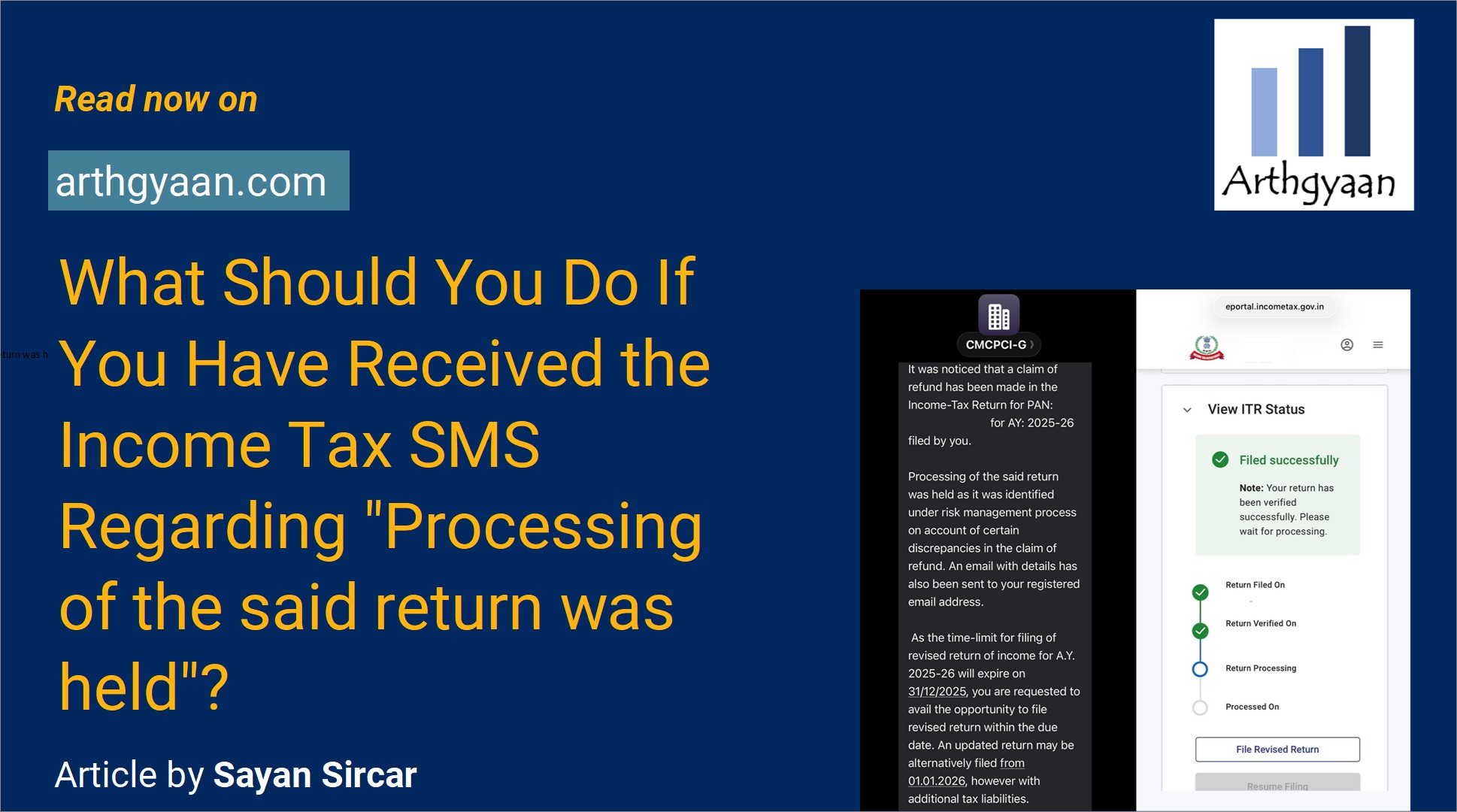A Quick Primer on Dividends and their Taxation for Residents and NRIs
This article gives a high level overview on dividends and related taxtion rules for both residents and NRIs.
This article gives a high level overview on dividends and related taxtion rules for both residents and NRIs.

Companies and mutual funds give dividends. Companies distribute dividends as a reward to shareholders to encourage them to stay invested. Dividends, as per the Dividend Discount Model (DDM), are an important metric for determining the valuation and, therefore, the share price of the company.
However, there is a significant difference between dividends from these two sources:
Company dividends come from profits.
Mutual fund dividends come from cash held in the fund.
Investors should avoid investing in mutual funds that give dividends (called IDCW funds) unless they have a very strong reason not to, as taxes on capital gains are either lower or allow deferral:
Dividends became taxable in India at the slab rates of the investor from the Assessment Year 2021-22 onwards. This change was implemented in the Finance Act of 2020, where the Dividend Distribution Tax (DDT) was abolished, and the responsibility of paying tax on dividends was shifted to the shareholders (stocks) and unitholders (mutual funds).
Any dividend received before 1st April 2020 was tax-free in the hands of the investor, while the company or fund declaring dividends paid DDT. This situation was reversed for dividends received after 1st April 2020.
Dividends are taxable at the individual’s applicable income tax slab rates. This means that the dividend income is added to the total income and taxed according to the applicable slab rates of the individual.
The same calculation applies to dividends from foreign stocks. If you have already paid withholding tax on foreign dividends (e.g., 20% on US stocks), it can be offset at the time of filing returns in India.
Warning: Claiming offset on withholding tax makes income tax return processing a manual activity. The assessment officer (AO) cannot be rushed for such tasks.
Resident investors should carefully weigh the benefits of claiming offset on withholding taxes vs. speedy and hassle-free ITR processing.
For most people in the 30% tax bracket, dividends are also taxed at 30%. Therefore, it is important to avoid creating a large dividend portfolio while having sufficient income from your salary. The tax you pay on dividends is wasted as you cannot compound that amount.
Stock/Fund return = Dividends paid + Price change
Since you are paying tax on these dividends, the stock return is now lower.
If the total dividend received from a company exceeds ₹10,000 (from 1st April 2025 ownards) in a financial year, the company will deduct TDS at the rate of 10% before paying the dividend. This TDS can be adjusted against the total tax liability of the individual while filing the income tax return.
For NRIs, the TDS rate is 30%, and there is no minimum limit before TDS is applied.
Form 15G is for residents below age 60, while Form 15H is for senior citizens.
Form 15 is applicable if your income is below the taxable limit (e.g., ₹2.5 lakhs/year for those below the age of 60).
NRIs cannot file Form 15G/H.
If you submit Form 15 to the company/mutual fund that declares dividends, then TDS will not be applicable. In most cases, this form can be filled out online, and companies usually send an email intimation as well.
The tax on dividends is supposed to be paid as per the usual advance tax schedule whenever your dividend income exceeds ₹10,000 in the financial year:
| Due date | Advance tax payable |
|---|---|
| 15th June | 15% |
| 15th September | 45% |
| 15th December | 75% |
| 15th March | 100% |
In each of the above cases, you need to subtract the advance tax already paid.
Any tax on dividends not already paid as per the schedule above must be paid as self-assessment tax during income tax return filing. Interest and penalties are applicable for each date of delay.
The correct source of dividend income is the bank account statement. You will pay tax only if you get dividends credited to your bank account.
All other sources of information, like broker statements and Form 26AS, which has income and TDS information, as well as the Annual Information Statement (AIS), are not guaranteed to be complete or accurate in the case of dividend income.
Your Form 26AS will, however, show the TDS applicable to you. We will discuss these cases:
NRIs will be taxed at the slab rate for dividends on their income in India with 20% TDS. This dividend income will be a part of their global income and likely taxable in their home country.
📕 What is Double Taxation Avoidance Agreement (DTAA)?
There should be Double Taxation Avoidance Agreements (DTAA) applicable to only pay any tax abroad that is not already paid in India.

Published: 23 December 2025
6 MIN READ

Published: 18 December 2025
8 MIN READ
1. Email me with any questions.
2. Use our goal-based investing template to prepare a financial plan for yourself.Don't forget to share this article on WhatsApp or Twitter or post this to Facebook.
Discuss this post with us via Facebook or get regular bite-sized updates on Twitter.
More posts...Disclaimer: Content on this site is for educational purpose only and is not financial advice. Nothing on this site should be construed as an offer or recommendation to buy/sell any financial product or service. Please consult a registered investment advisor before making any investments.
This post titled A Quick Primer on Dividends and their Taxation for Residents and NRIs first appeared on 26 Jun 2024 at https://arthgyaan.com